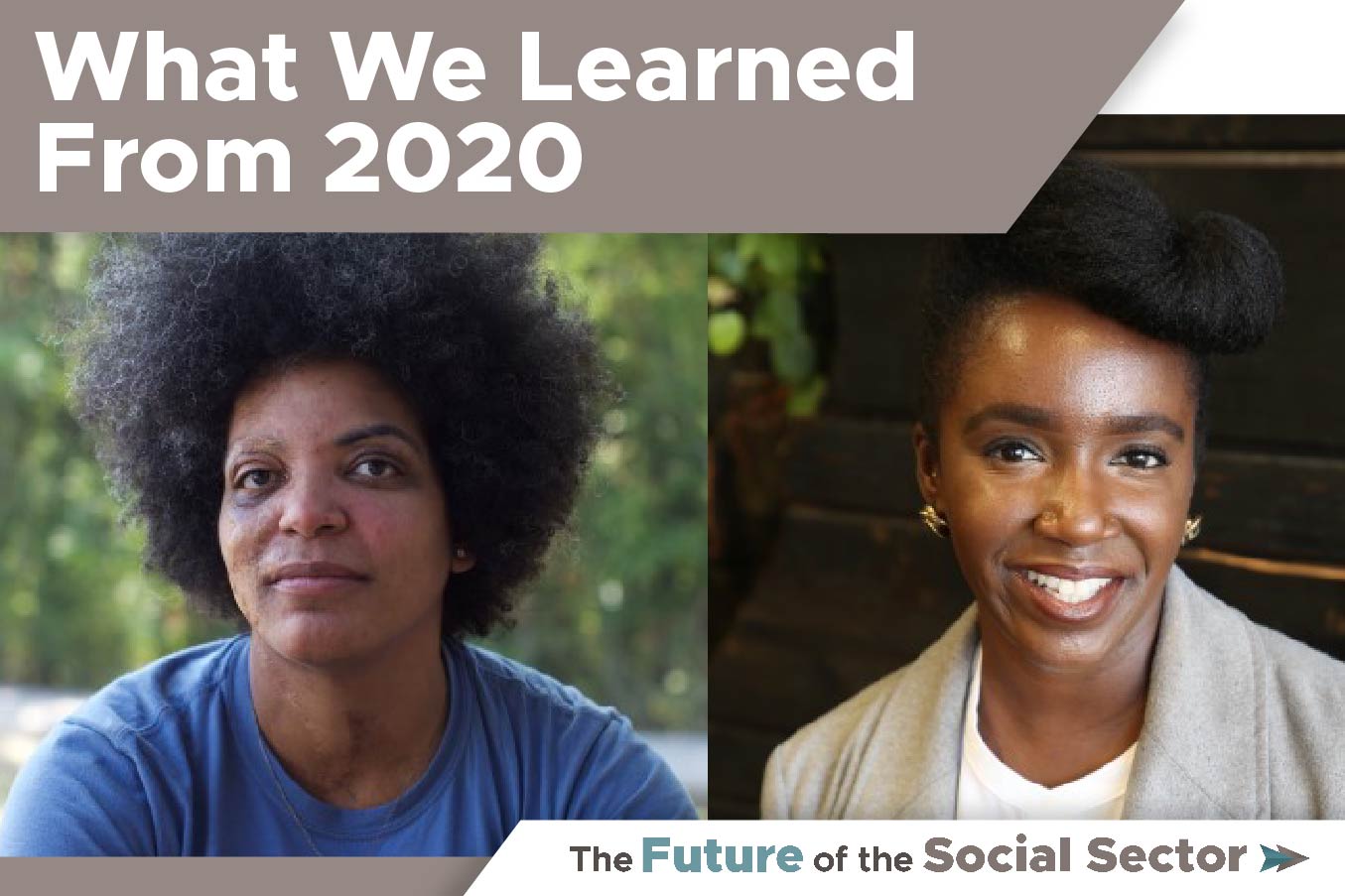Sustaining Support for Racial Equity: Three Reflections from Our First Convening

Philanthropy has reached a transitional moment. In the wake of 2020’s disruptions, the sector has an opportunity to reflect on and refine its role and to help drive transformational change. But what are the right next steps to take? With that question in mind, Arabella is convening a set of virtual convenings, conversations, and publications to explore the Future of the Social Sector and philanthropy’s role in it.
On February 18, we hosted our first virtual convening in the series, “2020: What Have We Learned from Shifts in Society and Philanthropy?” The conversation featured Nwamaka Agbo and Ash-Lee Woodard Henderson in dialogue with Sampriti Ganguli. The discussion offered a hard look back at our recent crises and at the longstanding effects of systematic racism. It also produced a call to action for philanthropy to meet this historic moment by transforming how it uplifts and sustains BIPOC leaders and movements going forward.
Here we offer three reflections based on the conversation, all related to philanthropy’s role in sustaining support for racial equity work and the people leading it. (Much more ground was covered in the full conversation between Nwamaka, Ash-Lee, and Sampriti. To explore it all, watch the event.)
Reflection 1: Don’t just support resistance. Act in genuine solidarity with BIPOC communities.
To meet this moment philanthropy needs to overhaul its operating paradigm. Together, we must reimagine what it means to uplift and sustain BIPOC communities fighting for democratic reform, equity, and economic opportunities. This means we cannot continue to partner in the same ways we often have in the past. Instead, we must adopt a mindset of solidarity in this work.
- Consider providing more multi-generational, unrestricted funding that supports longer-term movement building; this includes technology and infrastructure development.
- Recognize that an issue-centric approach to funding will often be ineffective. Our most pressing problems typically lie at the intersection of multiple systems and processes; to address them effectively, philanthropy needs to recognize these connections and fund interventions that include an intersectional approach.
- Embrace how local communities define progress and success rather than mandating reporting requirements from the outside.
- Explore the whole array of assets available to invest in local communities.
Reflection 2: Align internal values and operations with external strategy.
Transforming philanthropy’s external approach is not enough. We must also simultaneously focus on how our internal practices and processes effectively support racial equity and justice. Philanthropic institutions should invest in refining their organizational mission and values to reflect issues of diversity, equity, and inclusion. Internal recruitment and retention processes should not only focus on diversifying executive-level leadership, but also on integrating a broader array of staff from BIPOC communities that have deep experience in local activism and movement building. In addition, we should examine our investment portfolios holistically to identify and redirect resources that are being channeled to organizations or efforts that are acting in opposition to the very movements we are trying to uplift.
Reflection 3: Invest in self-care for BIPOC community leaders and activists.
BIPOC leaders regularly risk their lives and livelihoods to build and sustain the movement for equity and justice. In the current moment, many are worn out and exhausted. To maintain their resilience, enthusiasm, and energy, philanthropy can invest more in their well-being.
- Help protect movement leaders from digital and physical threats.
- Fund retreats, professional development, and sabbatical opportunities.
- Create opportunities for peer-to-peer support and mutual aid.
Collectively, the steps above suggest a shift in both mindset and practice for philanthropic leaders, a deliberate movement from strategic philanthropy to solidarity philanthropy. To truly stand shoulder-to-shoulder with movement leaders will require careful examination of our own practices and policies—and a willingness to seize this moment to push forward needed change.
Please join us for our next virtual convening in the Future of the Social Sector series taking place May, 12th 2021 from 2-3:15 pm ET. You can register for that event here.
